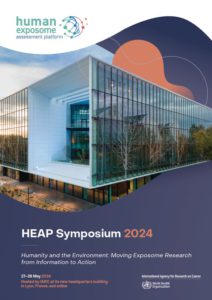"Humanity and the Environment: Moving Exposome Research from Information to Action"
Hosted by
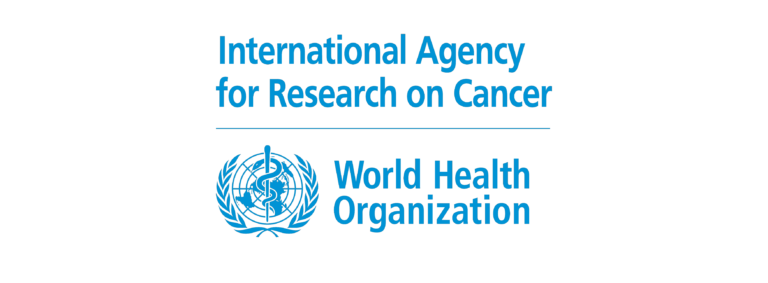
As the specialised cancer agency of the World Health Organisation, IARC’s status as an international organisation enables it to coordinate research across countries and institutions. One of the products of IARC’s coordinating role is its biobank, which holds around 6 million samples from 600,000 subjects.
View the presentations
Keynote: "European exposome research infrastructures"

Jana Klánová is the Director of RECETOX, Masaryk University, Czech Republic and coordinator of the ESFRI Research Infrastructure for human exposome (EIRENE).
She is Professor of environmental chemistry at Masaryk University in Brno, Czech Republic. Her research interests are in environmental health sciences and environmental determinants of health.
Presentation summary
This presentation gives an overview of the main developments in European research infrastructures in recent years, and focuses on EIRENE (Research Infrastructure for Environmental Exposure assessment in Europe), which is the first EU infrastructure on the human exposome and a focal point of international exposome research.
EIRENE will enable large-scale interdisciplinary research on chemical exposures, through harmonised workflows from data collection through data processing and end results.
"Personal exposometers for monitoring the environment"

Allison Zhang is a postdoctoral scholar who is working on a HEAP project to pilot continuous personal exposome profiling of 100 volunteers during their pregnancies.
She is part of a team at Stanford University, led by Michael Snyder, that has been focusing on improving the design of wearable Personal Exposome Monitors (PEMs) and multi-omic profiling.
Presentation summary
Personal exposometers are wearable devices equipped with miniaturized sensors. They capture both biological and chemical exposures, and can be worn by study participants to monitor their personal exposures over time.
These devices offer new ways of monitoring our environmental exposures and understanding their associated health risks. They can be worn by study participants to longitudinally monitor their personal exposome. The high-resolution exposure information provides the data foundation for exposure risk assessment.
"DNA methylation in cancer prevention – opportunities and challenges"

Martin Widschwendter is the Director of the European Translational Oncology Prevention and Screening (EUTOPS) Institute at the University of Innsbruck, Austria.
He is leading the HEAP Epigenomic Analysis Work Package (WP8), which uses cohort study data to analyse the epigenome to identify alterations triggered by environmental exposures.
Presentation summary
The incidence of cancer continues to rise as lifestyles change and people live longer; a shift towards cancer prevention is urgently required. Reliable methods for measuring an individual’s risk of cancer would support innovation in cancer screening, by targeting those at highest risk, and lead to new approaches to primary cancer prevention.
Ideally, risk-predictive tests should take both genetic and environmental factors into account, and be biologically stable and technically reproducible. The latest evidence suggests that the epigenome and, in particular, DNA methylation-based tests meet all of these requirements.
Martin presents his latest research using data from cervical cancer screening and cancer prevention settings, and outlines the challenges and opportunities that these data present to researchers.
"The Consumer exposome - Consumer purchase data and chronic disease"
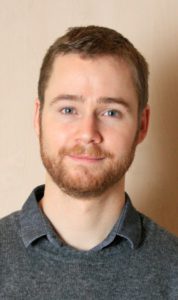
Frederik Trier Møller, MD, Senior Registrar, PhD, epidemiologist and innovator, has established research infrastructures and conducted extensive epidemiologic studies using Danish registers.
He is leading the Consumer Cohort Work Package of HEAP, that is collecting consumer purchase data from volunteer research participants, and using the data to analyse consumer purchases impact on health.
Presentation summary
Consumer Purchase Data (CPD), from loyalty programs and digital receipts is emerging as a promising source to assess the effect of consumer products on our health.
HEAP researchers at Statens Serum Insitut have developed a GDPR-compliant, secure, encrypted web application to to allow study participants to consent to share their consumer data from three of the five largest retail chains in Denmark. These data are then linked to individual level health outcomes.
Consumer Purchase Data can also enable the creation of personal chemical cosmetics footprints, and can help detect the source of disease outbreaks.
Results from a collaboration with another Danish consumer cohort, reveals associations between dietary and smoking purchases and chronic disease.
Perhaps these, and future results will pave the way for personalized prevention, and could be used to improve the healthiness of algorithms used in loyalty programs?
"International collaboration in comprehensive exposome research"

Ville Pimenoff is an Associate Professor at Oulu University, Finland and a visiting researcher at Karolinska Institutet.
His exposome research uses data from internationally unique cohorts, including the Finnish Community Randomized trial of HPV Vaccination, the Finnish Maternity Cohort (biospecimens and registry data from pregnancies in Finland since 1983), including a pilot of adding wearable sensor data from pregnant volunteers to the cohort.
Presentation summary
Personalized longitudinal monitoring will change our understanding about abiotic and biotic exposures. Using wearable devices, researchers can collect longitudinal cumulative aerosol exposure samples from our daily environment. Ultimately, personalized wearable profiling may even enable predictions in individuals’ health.
In this collaborative human exposome monitoring project, we combined wearable sensor technology with Finnish longitudinal cohort data, biobanking, GDPR-compatible sensitive data management and advanced scientific computational inference.
Our results demonstrate the feasibility of the proof-of-concept study among 100 pregnant and non-pregnant Finnish women using filter-based wearable device longitudinal monitoring. Taken together, we show that using wearables monitoring enables high-resolution personalized exposure analyses.
"Bioinformatics in action - building and using the HEAP platform "
Presentation summary
The Human Exposome Assessment Platform (HEAP) provides a robust informatics tool tailored to the needs of exposome researchers. It summarises four years of collaboration between researchers and software engineers from HEAP consortia. This tool facilitates the management and integration of heterogeneous data sources, offers analytics and machine learning capabilities, and enables the interpretation of chronological and causal relationships from big data.
In this presentation, we will hear from the software engineers who developed the HEAP platform, the coordinator for the metagenomics pipelines as well as from researchers who use it to analyse metagenomic data. We will begin with an overview of the platform’s key technical features and conclude with practical demonstrations.
Part 1: "Building the HEAP platform" - the software engineers' story
Overview of the HEAP data management and analysis platform

Alex Ormenisan is a co-founder and senior software engineer at Heap consortia partner Hopsworks. He specializes in architecting backend solutions for large-scale distributed systems.
His research interests include machine learning, metadata management and data governance.

Dhananjay Mukhedkar is a software engineer at Hopsworks and one of the architects of the HEAP platform.
He works with HEAP researchers at Karolinska Institutet to develop bioinformatics pipelines for genomic sequence data.
Part 2: "Using the HEAP platform" - the researchers' story
HEAP use case: "Biopipe" - Parallel computation applied to cancer research
Sara Arroyo Mühr will provide an overview of the necessity for parallel computation in cancer research.
She will demonstrate the simplicity of applying Biopipe, an open-source validated bioinformatic pipeline developed for taxonomy profiling of human cancers, within the HEAP platform.

Dr. Sara Arroyo Mühr, Metagenomics Coordinator at HEAP, is a pioneering researcher in high-throughput sequencing for microorganism analysis.
Her work spans molecular microbiology, biomarkers, cancer diagnostics, bioinformatics and machine learning, driving innovation in these fields.
HEAP use case: Deep-sequencing strategies applied to colorectal cancer metagenome charactizeration
A demonstration of non-targeted deep-sequencing strategies enabling full microbiome characterization up to species level.
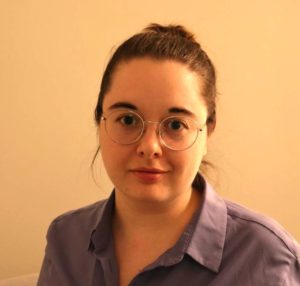
Ainhoa Garcia-Serrano is a bioinformatician at Karolinska Institutet, where she is completing a PhD on the role of the microbiome in carcinogenesis.
Her research focuses on bioinformatic tools and pipelines for metagenomic characterization, viral discovery, and machine learning microbiome feature selection.
"Ethical and legal topics in exposome research in the EU. Results from the EHEN Ethics and Law working group"

Daniel Groos is a legal researcher at HEAP consortia partner Lygature for their Health Law, Privacy & Ethics (HPE) portfolio.
He is part of the Ethics and Regulations Work Package of HEAP, and coordinator of the European Human Exposome Network (EHEN) Working Group on Ethics and Law.
His work is focused on privacy and data protection in large-scale research consortia.
Presentation summary
What are the most pressing ethical and legal issues encountered by exposome research consortia?
From participant-facing governance to the European Health Data Space, since 2020, the EHEN Working Group on Ethics and Law has facilitated many fruitful and lively exchanges of experiences on the ethical and regulatory challenges in exposome research,
This presentation summarises and shares the outcomes of these discussions with a wider group.
"Health equity versus individualism: On mission creep in public health"
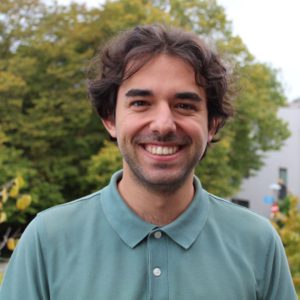
Caspar W. Safarlou (MA) is a PhD candidate in Bioethics at the Department of Global Public Health and Bioethics of the Julius Center at the University Medical Center Utrecht.
His work is focused on the ethical aspects of exposome research, and he recently published a systematic review on this topic. He has also written on the nature-versus-nurture debate in exposome research, privacy, and ethical aspects of non-hypothesis-driven research.
Presentation summary
Is health equity a good political and ethical ideal?
From the perspective of individualism, this presentation discusses health equity, and its role in the ever-expanding scope of public health.
"Open science and cross-border research: new models of governance"

Evert-Ben van Veen is a lawyer with more than 30 years’ experience in health and privacy law.
He leads the Ethics and Regulations Work Package of HEAP, and chairs the European Human Exposome Network’s Law and Ethics Working Group.
His work has focused on ways to reconcile the practical needs of scientific research with fundamental legal and ethical questions, for example, helping to refine the text of the GDPR to show a more balanced approach to scientific research.
Presentation summary
Society has high expectations of publicly funded scientific research. Thus research projects are built on trust, and need to create trust by interacting with all relevant stakeholders via good self-governance.
This presentation discusses the core elements of good self-governance of research projects. It looks at the various ways in which researchers can implement these, some common challenges, and how these challenges can be addressed.
"Engaging with healthy people in lifestyle studies: what have we learned during HEAP?"
Presentation summary
The LIFE & SUN Tirol studies were set up in 2022 at the EUTOPS Institute, and investigate the health-promoting effects of intermittent fasting, exercise, stress reduction training and smoking cessation and how well these measures are accepted by the Austrian population.
Approximately 800 healthy participants were divided into five intervention groups in LIFE, and two groups in SUN, with the participants visiting the study center in Tirol, Austria five times over an 8-month period. During the visits, they were monitored for factors including changes in quality of life and sleep, stress, and took biological samples (blood, urine, stool, cervical and buccal swabs for epigenetic markers), and measured blood pressure and many other parameters.
This presentation provides an overview of our experience of conducting the practical aspects of this study, including challenges faced and lessons learnt with regards to planning, recruitment of personnel and study participants, and implementation.

Sandra Plaikner is study coordinator at the EUTOPS Institute, Austria.
She holds a medical degree and a Master’s degree in Nutrition and Food Technology, and was involved in planning and setting up the LIFE & SUN studies.
Sandra hopes that the EUTOPS team, with its prevention studies, can help to shift the focus of governments and healthcare systems towards prevention rather than aftercare.
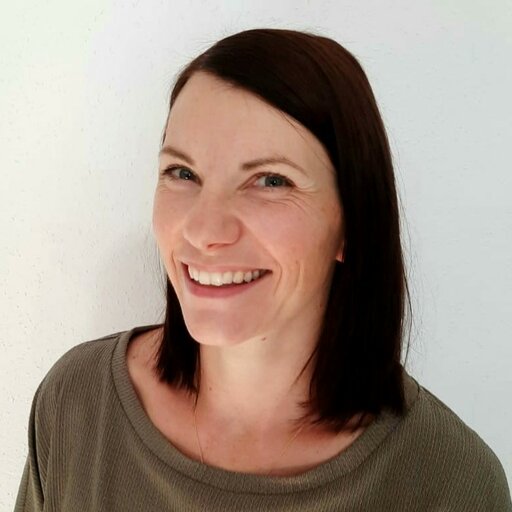
Ingrid Lieb has 15 years of experience as a registered nurse, including many years in geriatric long-term care.
Her role is focused on the care of participants in the LIFE & SUN study, supporting them in making a positive contribution to medical research. Ingrid sees her work as an opportunity to improve individual lives and to make a significant contribution to the health and well-being of future generations.

Tamara Schmid is a registered nurse and holds a Bachelor of Science in Nursing from FH Gesundheit, Reutte.
She has completed nursing internships in a range of healthcare settings in Europe and Africa and is a member of the research team at the European Translational Oncology Prevention & Screening Institute (EUTOPS).
"An introduction to the European Health Data Space (EHDS) and Secure Processing Environments (SPEs)"

Melvin Thomas is a research associate at TMF e. V. He holds a law degree from the Free University of Berlin.
His main research focus is data protection. Through his role at TMF, which is an inter-disciplinary organisation with a strong research network, he has insights into a range of legal areas and technological challenges associated with medical research.
Presentation summary
What does the European Health Data Space (EHDS) Regulation mean for exposome researchers? And is the EHDS likely to realise its goal of making health data usable for cross-border research?
This presentation explores the potential and limitations of the EDHS’s provisions for secondary use of health data for scientific research.
"Impact of the European Health Data Space (EHDS) on cross border research"

Artur Rocha has been a senior researcher at the Portuguese research institute INESC TEC since 1998. He is the coordinator of HumanISE – Human-centered computing and Information Science.
His interests include personalised health research, platforms and methods for collaborative research, privacy-preserving distributed computation, the semantic sensor Web (IoT) and Big Data processing.
He has extensive expertise in fields such as mental health, epidemiology and immunogenetics, where storage and processing of sensitive data, and controlled FAIR data sharing are of great importance.
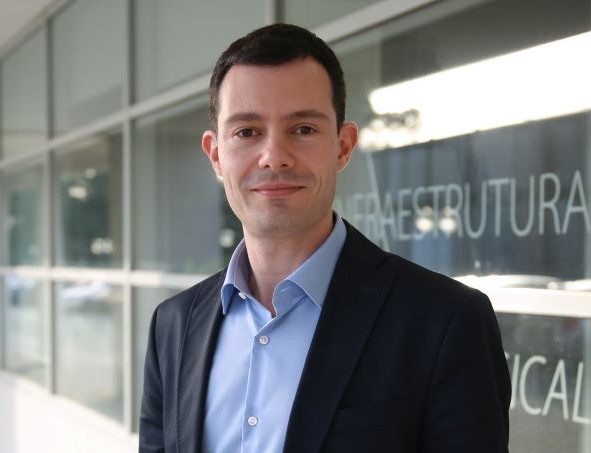
Vasco Rosa Dias is Data Protection Officer (DPO) at INESC TEC and ISPUP. While INESC TEC focuses on new technologies, ICT and computer science, ISPUP is a Public Health research institute.
He is also a member of the Ethics Committee of INESC TEC, and integrated the ethics and privacy governance bodies of several EU or international research projects. He is a member of the pool of Experts of the European Data Protection Board for new technologies.
His main topics of interest and research cover the fields of EU law, technology regulation and data protectio
Presentation summary
High-value research, particularly in fields such personalized health, relies on high-quality data, and tools to find and process these data.
Achieving this in accordance with European values requires that data are processed ethically, and in a way that respects the rights of data subjects.
We present our experiences of setting up an international network for epidemiological studies across the life of individuals, and associated challenges in the implementation of European Health Data Spaces.
"International Biobanking and exposome research"

Professor Wagida Anwar is the Director of the Molecular Epidemiology Unit in the Medical Faculty of Ain Shams University, Egypt.
She also serves as a Public Health Consultant and Advisor for the World Health Organization (WHO), Egyptian Environmental Affairs Agency, Ministry of Foreign Affairs, and Ministry of Health and Population., and as a Director of the Ain Shams Genetic Engineering and Biotechnology Center, Ain Shams University. Her research spans many scientific fields, with a particular emphasis on the environmental pollution and cancer.
Presentation summary
Professor Anwar’s research focuses on the relationship between environmental pollution and cancer especially as it relates to the liver, bladder and hepatitis. Her presentation covers exposome research and experiences within Egypt as an advanced Health System approach, yet located within a middle-income country, and the lessons learned for exposome research in resource-restricted settings.
She also discusses evidence-based implementation synergies, including drafting and designing health system improvement programs and campaigns for Non-Communicable Diseases.
"Perspectives on environmental exposure and human health"
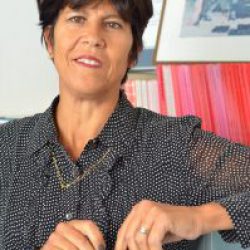
Isabella Annesi-Maesano is a research director at Inserm and professor of environmental epidemiology. She is deputy director of the Desbrest Institute of Epidemiology and Public Health, a joint Inserm and University of Montpellier research unit.
Her research focuses on the etiopathogenesis of allergic and respiratory diseases and associated comorbidities using an exposome approach. The main risk factors taken into account are air pollution and climate change.
In this context, she coordinated several international research projects, including one on the exposome (www.heals-eu.eu) which recruited pairs of twins.
Presentation summary
Exposome research is increasingly understood as a necessity in providing a holistic evidence base for understanding human health at both an individual and population level.
Previous and current research has focused on epidemiological studies on the prevalence, severity and environment determinants of allergic and respiratory diseases in Africa (French-speaking Africa, Mozambique and Cap Vert) as well as French Polynesia and New Caledonia, and have involved collaborating with national and international authorities.
A more recent research stream has been the respiratory health effects of climate change and wildfires. This presentation will cover past and recent research outcomes, as well as the future outlook.
"Long-term outlook of HEAP Secure Cloud Infrastructure"
Stefan Negru is Development Manager at CSC – IT Center for Science in Finland, and leader of HEAP’s Secure Infrastructure for Big Data Work Package (WP 10).
His background is in semantic web technologies, linked data, graph databases and visual analytics. He has a Phd in Knowledge Engineering in the context of human computer interaction.
Presentation summary
How will HEAP’s secure IT platform, developed by CSC – IT Centre for Science, continue to support exposome research in the future?
The HEAP platform enables researchers to manage sensitive data from multiple sources, including health data from large population-based cohorts, and metabolomics data from biological samples.
Through examples from HEAP’s pilot projects, this presentation shows how the secure infrastructure has been designed around the needs of exposome researchers, from data collection through to publication of results, and looks at scenarios for future development.
"The International Human Exposome Network (IHEN)"

Martine Vrijheid is Research Professor and Director of the Environment and Health over the Lifecourse Programme at ISGlobal, Barcelona.
A member of the IHEN leadership team, she is currently coordinator of ATHLETE (Advancing Tools for Human Early Lifecourse Exposome Research and Translation), which alongside HEAP is one of the nine Horizon 2020 projects in the European Human Exposome Network (EHEN).
Presentation summary
Recent years have seen a proliferation of exposome research projects, and the launch of several new research infrastructures.
To keep pace with these developments, the International Human Exposome Network (IHEN) project. launched in February 2024, will improve global research cooperation on the exposome.
Funded by Horizon Europe, IHEN will bring together exposome tools, metadata, and resources in a FAIR toolbox, and develop a roadmap for future exposome research and innovation.

